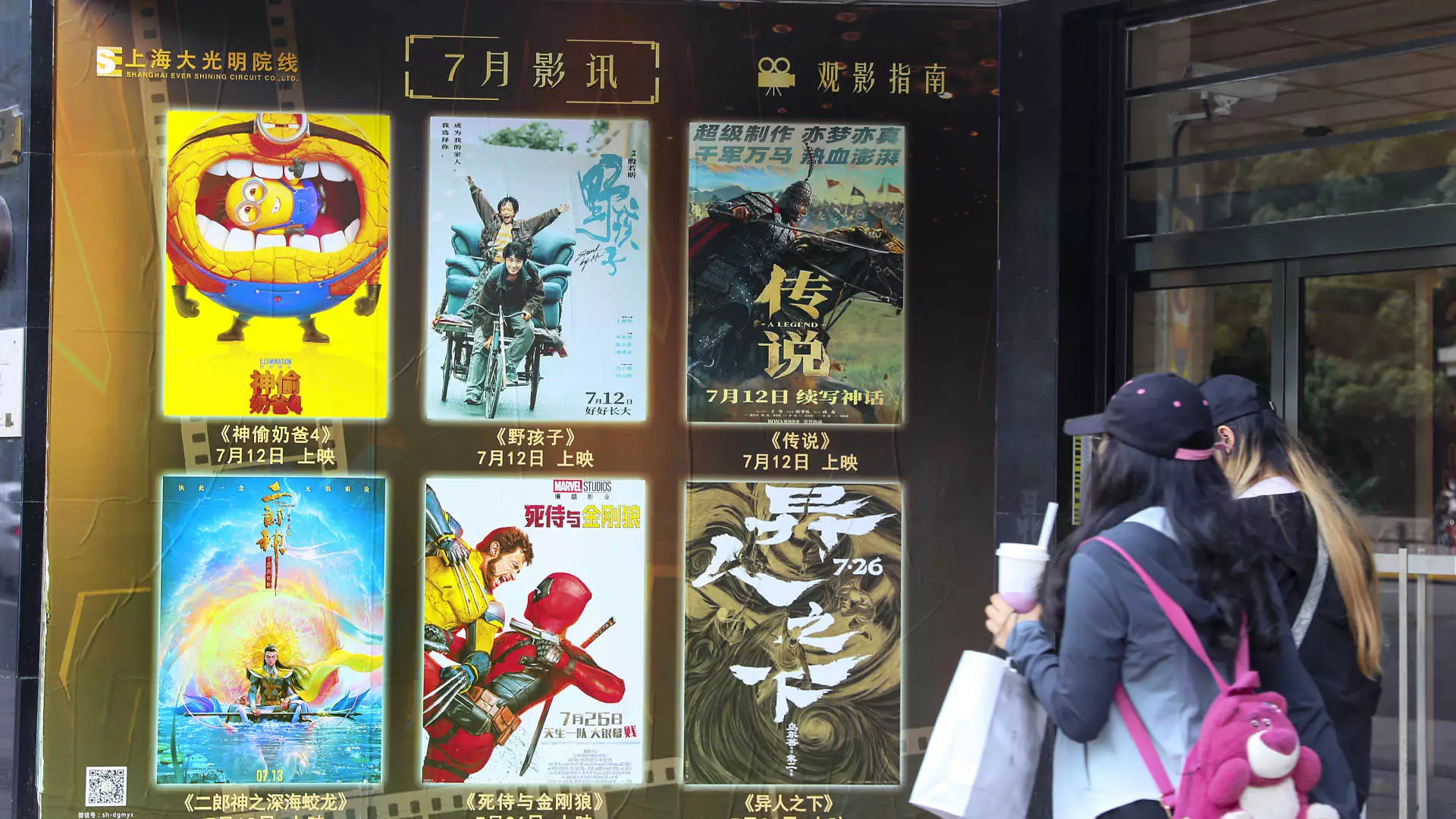The convergence of politics and entertainment has hit a dramatic, unforgiving note as President Donald Trump’s trade war intensifies, with Hollywood caught in the crossfire. When he ramped up tariffs on Chinese imports, the predictable retaliation from China came swift and merciless, leading to tightened restrictions on Hollywood films in Chinese theaters. This fragile relationship is not merely about money; it embodies the cultural tug-of-war that highlights the changing dynamics of global film production and consumption. It’s astonishing to think that a trade conflict, founded on policies related to tariffs and imports, could substantially reshape the landscape of international cinema. This shift poses existential questions: Is Hollywood prepared for an era where its influence wanes against rising domestic markets?
The Shrinking Box Office
Once a bastion of vital financial returns, the Chinese box office has morphed into a battleground for U.S. studios like Disney and Warner Bros. Discovery, whose stock performances are now emblematic of this uncertainty. Just last week, these companies witnessed significant dips as Wall Street reacted to the turbulent winds of tariff changes—an indicator that their reliance on international markets, particularly China, is proving perilous. Former Warner Bros. CEO Ann Sarnoff highlighted an alarming trend: studios are drastically reducing their Chinese revenue projections, recognizing that the cozy financial relationship is fading. Indeed, the once insatiable appetite of Chinese audiences for American films has been eclipsed by a burgeoning local industry that produces crowd-pleasing blockbusters tailored to Chinese sensibilities.
The Erosion of Trust
The expiration of the U.S.-China Film Agreement in 2017 acted as a catalyst for this decline, a mistake that reverberates through today’s slow movie turnouts in China. With this cessation, the guarantee of 34 American films released per year eroded, leaving studios scrambling to seize the mantle of viewer attention—a battle they are losing. The insights provided by Aynne Kokas, a University of Virginia professor and author of “Hollywood Made in China,” shed light on the incomplete negotiation landscape during the previous Trump administration, which largely sidelined the motion picture industry. Had Hollywood actively pursued its interests, who knows how different the current terrain might appear?
Domestic Strides versus Global Footprints
Perhaps the most disconcerting realization stems from the swift rise of the Chinese film market. As the U.S. industry grapples with stagnant ticket sales and lackluster performance, China celebrates milestones like “Ne Zha 2,” which shattered records by eclipsing $1 billion at the domestic box office. This not only reveals a burgeoning regional cinema but calls into question whether American studios can adapt and innovate to recapture their once-coveted status. The consistent underperformance of American films in China indicates an alarming trend: the golden age of Hollywood’s dominance may very well be dwindling into obscurity.
The Economics of Art
Let’s not ignore the nitty-gritty economics. Financial estimations for upcoming films now reflect a sobering truth: studios can no longer bank on the Chinese market to lift their box office fortunes in a substantial way. To add salt to the wound, the recent weakening of the dollar exacerbates declining returns, calling into question the future viability of international financing for these projects. While the glitzy projections of global box office take may lure investors, the sobering reality reflects that Hollywood may be forced to recalibrate its ambitions based on sobering metrics rather than star-studded expectations.
The Uncertain Road Ahead
Hollywood executives thus find themselves in an existential quandary where the once-invincible fortress of the film industry is suddenly under siege. The uncertainty surrounding the outcome of the trade war leaves them pondering the long-term impact on their enterprises. Will these turbulent times spur innovation and foster a more robust relationship with local industries, or will they simply serve as a reminder that all great empires face decline? The question remains: Can Hollywood adapt to a new global era, or will it become a relic of the past, lamenting lost audiences and squandered markets?

